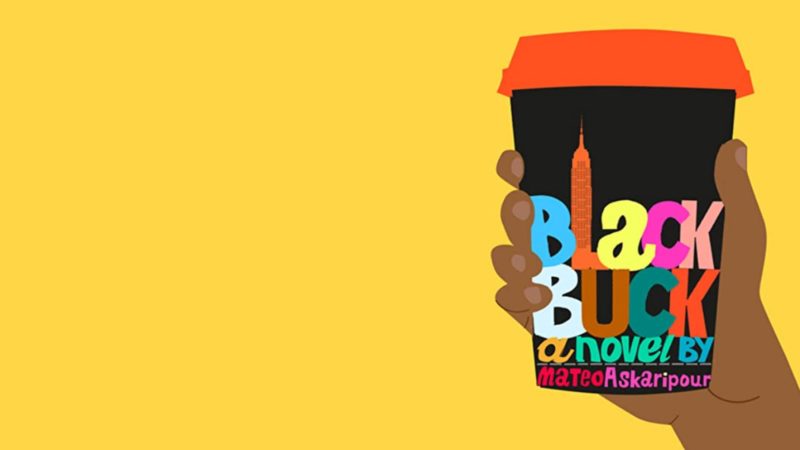In the author’s note of Mateo Askaripour’s debut novel Black Buck, he asks the reader to do three things: “1) Let down your guard and open your mind to what I’m going to tell you. 2) Understand that I want all people to be successful, but…I’m starting with Black people…If you’re not Black, but you have this book in your hands, I want you to think of yourself as an honorary Black person. 3) Say, ‘Every day is deals day,’ and clap your hands. And when you do, think of the number one thing you’re working toward.”
His purported aim is to teach us how to sell, and if he’s successful, he asks us to buy another book and give it to a friend who needs it most. But when we get to his signature, we learn that the author is not Askaripour, but someone named Buck. The effect is akin to unwittingly shaking hands with a salesman who won’t release his grip until you hear his pitch—and the pitch becomes the novel, a sales manual/memoir written by its protagonist. The story begins with this twist and reveals its shape in five acts, each titled to mirror the sales process: “Prospecting, Qualifying, Discovery, Demonstration, and Close.” This structure, threaded with bolded sales tips, defies categorization. But just when I began to anticipate the book’s unconventional rhythm, Buck calls the story a “cautionary memoir,” further complicating the novel’s ostensible purpose.
Like being thrust into a tense sales demonstration of ever-changing variables, the novel rises and falls with increasing intensity. The experience is singular and personal but also vicarious: Readers embody protagonist Darren Vender’s climb from Starbucks to an all-white tech startup where he is transformed into a sales guru called Buck. We experience his trepidation as he is subjected to racism along the way, bathe in his ego-driven mania once he reaches the pinnacle of success, and suffer the disappointment of his eventual demise. Throughout the journey, we question the veracity of it all.
In one of the later scenes, Darren devises a scenario to teach a group of Black mentees about “tone, confidence, and delivery,” instructing the group to casually walk, one by one, past a police precinct, drinking their beers without the cover of brown paper bags. If questioned, Darren tells them to “drink your beer slowly right in front of them, and say with chests out, strength in voice, and a raised head, ‘Just drinking a beer, officer.’” They all think it’s a joke; it is, and it isn’t.
So much of Black life involves navigating these fraught exchanges, and Darren assumes a humorous, disarming voice that challenges the prevailing understanding of corporate America and race without the attendant anxiety that often stifles self-reflection. This, beyond turning his readers into sales experts, is the undercurrent of the novel.
Over the phone in early January, Askaripour told me that at that twenty-four, he was earning six figures as a sales director of a tech startup in Manhattan. Hitting the sales number for the day was his only goal, until one day he didn’t recognize himself. He had become one of the few Black people in an ultra-white space, selling micro-learning platforms to companies to onboard and develop their employees more effectively, but he didn’t feel like he was positively impacting the world. Faced with an existential crisis, Askaripour quit and, two failed manuscripts later, channeled his experience into Black Buck, which imagines a world wherein people of color work together to populate salesrooms. That it was published at a time when calls for representation are growing louder makes the novel all the more resonant.
